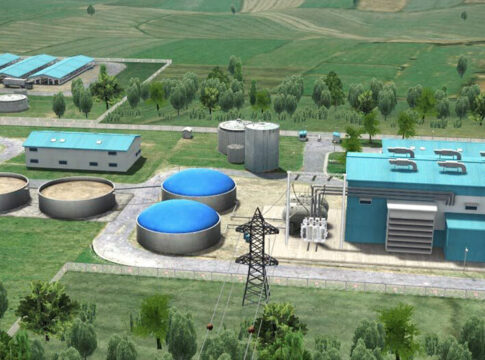As per an Africa News article, farmers like Mohamed Eissa, a 43-year-old resident of Beni Suef, are discovering the transformative power of biogas production units. These innovative units, introduced by a Cairo-based bioenergy company, are turning ordinary manure into valuable resources—cooking fuel and organic fertilizers. Eissa’s experience is a testament to the potential economic impact of biogas on Egyptian consumers and farmers.
In remote rural communities, where energy infrastructure may be weak or non-existing, household biogas digesters are considered a simple and effective technology to meet daily energy needs (cooking, lighting, and heating), thus substantially improving living conditions. Furthermore, biogas technology could address handling problems of industrial, agricultural, and domestic wastes, and at the same time produce renewable electricity, heat, and fertilizer.
Traditionally, Egyptian households have relied on butane cylinders for cooking. Petrogas Chairman Mohamed Farhat stated in September 2024 that Petrogas filled 310 million cylinders through 49 filling stations in fiscal year 2023/24. Eissa recalls purchasing four cylinders monthly, each costing EGP 170 (approximately $3.3 USD). Since adopting a biogas unit, his need for butane has dropped dramatically to just one cylinder per month, saving him around EGP 500 (approximately $9.8 USD). This shift not only reduces household expenses but also enhances sustainability by providing organic fertilizers that enrich his potato crops, reflecting a forecasted savings of billions.
Biogas production units offer a dual benefit: economic savings for individuals and a positive environmental impact. By converting waste into energy, these units lower dependency on fossil fuels, reduce greenhouse gas emissions, and enrich soil quality. Despite these advantages, Egypt has yet to fully tap into its biogas potential.
According to Ahmed Medhat, former executive director of Egypt’s Bioenergy Association for Sustainable Development, Egypt currently hosts around 5,000 household biogas units. This figure represents a mere half percent of the country’s potential. “There are many reasons for that, including a funding shortage. We also need a comprehensive system to raise awareness among people about the importance of biogas units and how they help solve Egypt’s energy issues,” Medhat notes.
The Cairo-based bioenergy company, which spearheaded the initiative, has ambitious plans for expansion. While specific production capacity forecasts for 2025 are not readily available, the company’s efforts align with global trends. The International Energy Agency predicts a 32% increase in biogas production from 2023 to 2028, suggesting potential growth opportunities.
Egypt’s energy demand continues to rise, driven by population growth and urbanization. Biogas offers a sustainable solution, especially in rural areas where agriculture is predominant. A study published in the Journal of Cleaner Production in March 2021 concluded that government support for the deployment of appropriately sized and maintained household biogas units could significantly improve operating efficiency and economic viability while reducing environmental impacts.
Furthermore, widespread adoption of more precise nutrient management planning would ensure that digestate is utilized efficiently, contributing significantly to the system’s environmental sustainability. It is crucial that local decision- and policy-makers create incentives for the construction and installation of additional household digesters in rural Egypt and introduce legislation about their proper installation, operation, and maintenance.
Biogas production units represent a pivotal step towards energy independence and sustainability in Egypt. As more farmers like Mohamed Eissa embrace this technology, the cumulative effect could significantly reduce national reliance on fossil fuels, lower carbon emissions, and enhance agricultural productivity. The road ahead requires coordinated efforts from policymakers, industry leaders, and communities to realize the full potential of biogas in Egypt’s energy landscape.


